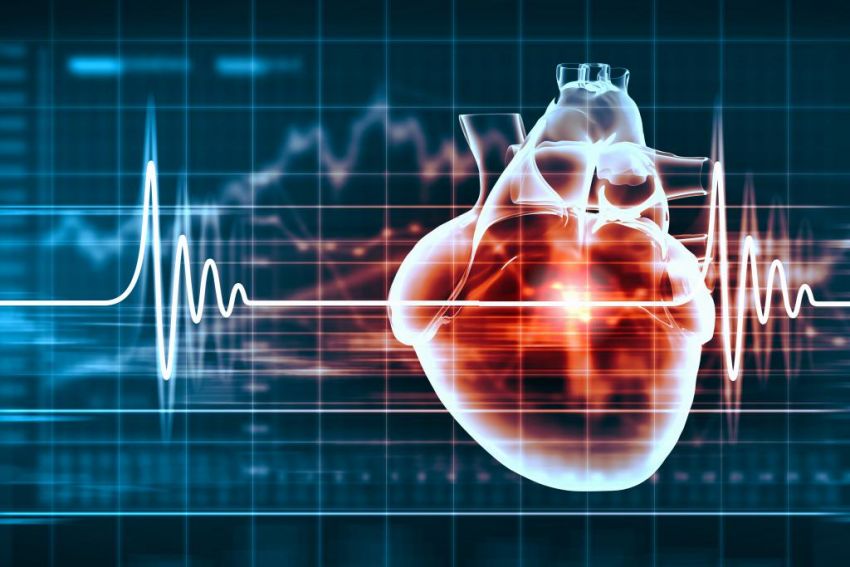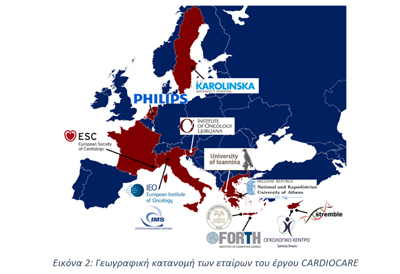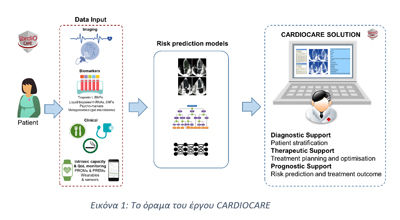Biosciences, Biotechnology

Cardiotoxicity, as a side effect of breast cancer treatment, at the heart of a new European research project
The new European research project CARDIOCARE, will focus on the management of the elderly multimorbid patients with breast cancer therapy-induced cardiac toxicity. The project is funded by the European Commission, within the Horizon 2020 Research and Innovation program, with a total amount of 6 million euros for a 4-year time period.

Figure 2: Geographical distribution of the CARDIOCARE partners
The number one cause of death for women with breast cancer is cardiotoxicity induced by cancer treatment. An important 50%-60% of the newly diagnosed breast cancer patients are older than 65 years of age and particularly susceptible to cardiotoxicity due to age-related risk factors, pre-existing heart disease and a high prevalence of co-morbidities.
Recently, the European Society of Cardiology (ESC) and the American Heart Association (AHA) have published drug lists that cause or exacerbate cardiotoxic effects, along with guidelines for the evaluation and management of cardiotoxicity caused by cancer treatments. However, best practices for the management of elderly cancer patients, systematically underrepresented in clinical trials, are lacking. As a result, frailty bias and high prevalence of multimorbidity can lead to undertreatment with suboptimal health outcomes, negative impact on quality of life and significant healthcare costs.
CARDIOCARE will exploit its unique retrospective and prospective data sources to develop a novel and cost-effective risk-stratification model, based on machine learning methods.

Figure 1: The vision of the CARDIOCARE project
The project brings together 12 partners from 7 different European countries. The consortium is assembled by a multidisciplinary group of scientists involving clinical cardiologists, oncologists, psychologists, geriatricians, pharmacologists, molecular biologists, bioinformaticians, and IT experts. The project also involves the European Society of Cardiology, an important European Reference Center for promoting and facilitating cardiovascular research in Europe, and novel SMEs specializing in clinical research in geriatric medicine, oncology and cardiovascular diseases as well as in advanced analytics, computational modeling and biomedical technologies.
Prof. Dimitrios I. Fotiadis, head of the Unit of Medical Technology and Intelligent Information Systems of the University of Ioannina & collaborating faculty member at the Institute of Molecular Biology and Biotechnology of FORTH, is the Project Coordinator.
Several R&D groups from Greece are key participants in the project, including the Computational BioMedicine Laboratory of the Institute of Computer Science of FORTH, headed by Associate Professor Costas Marias (Technical Manager), and the Laboratory of Applied and Interactive Computing of the Department of Electrical and Computer Engineering, headed by Professor Manolis Tsiknakis, from the Hellenic Mediterranean University. Prof. Giuseppe Curigliano from the European Institute of Oncology (IEO) in Italy is the scientific coordinator of CARDIOCARE while Prof. Gabriella Pravettoni from IEO is the clinical study manager.
For further info: https://cardiocare-project.eu/







